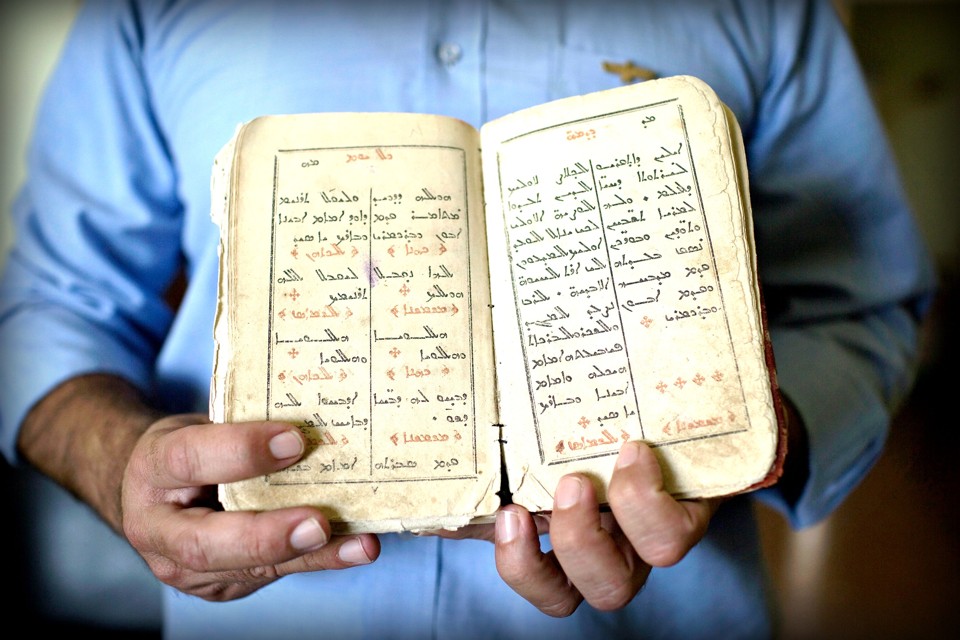
Posted on 10/16/2015 7:54:15 AM PDT by SeekAndFind
Is there anything inherently “doggy” about the word “dog”? Obviously not—to the French, a dog is a chien, to Russians a sobaka, to Mandarin Chinese-speakers a gǒu. These words have nothing in common, and none seem any more connected to the canine essence than any other. One runs up against that wall with pretty much any word.
Except some. The word for “mother” seems often either to be mama or have a nasal sound similar to m, like nana. The word for “father” seems often either to be papa or have a sound similar to p, like b, in it—such that you get something like baba. The word for “dad” may also have either d or t, which is a variation on saying d, just as p is on b. People say mama or nana, and then papa, baba, dada, or tata, worldwide.
Anyone who happens to know their way around a lot of languages can barely help noticing this eerie similarity. But when it comes to European languages closely related to English, like the Romance and Germanic ones, this isn’t so surprising. After all, these languages are children of what was once one language, which linguists call Proto-Indo-European and was likely spoken on the steppes of what is now Ukraine several millennia ago. So if French has maman and papa, and Italian has mamma and babbo, and Norwegian has mamma and papa, then maybe that’s just a family matter.
But when we’re talking several millennia, even closely related languages have a way of morphing beyond recognition.
(Excerpt) Read more at theatlantic.com ...
I thought dog in Chinese is called dinner.
NOPE. Not even close :)
Not sure. I know rat in Chinese is pronounced “chicken” though.
Like “potato” and “batata”...
Big whoop...
I don’t think it’s a coincidence that “mama” is similar in many languages. Picture what a baby’s mouth does when nursing. It’s not much of a stretch to see how the infant would vocalize “ma-ma” when it wants to nurse. In fact, the word in Spanish for “nurse” is mamar.
Heather has two mamas
I've always liked Japanese food as it's hallmark is FRESH, fresh, fresh, as in sashimi, almost raw. It is FLASHED in hot and then cold water.
Their hot pots are cooked right on the table where one adds the fresh veggies and then fresh, raw meat.
One can always see and smell what they are about to eat.
The British went overseas and conquered the world to get away from their own cooking.
Sick, innit?
Those "mamas" will have a reckoning someday, with their Maker.
The Latin word for “breast” is “mamma”, furthermore.
RE: I don’t think it’s a coincidence that “mama” is similar in many languages. Picture what a baby’s mouth does when nursing.
Well, the first babble that came out from my daughter’s mouth was Da-Da.
mother: ummi [literally my mother]
father: baba
I saw a LITTLE girl talking to her "baba." He was SO patient with her and you could tell that he adored his little "bint." [bint = girl]
GOOD ONE!
Heehee.
like mmmmmmmmmmm
HEhehe. Last night on Chopped they were in London and all the cooks were from there. There wasn’t one item they made that looked the least bit appetizing.
Except that in Japanese ‘father’ is ‘chichi,’ pronounced “chee-chee,” though the more formal word is ‘oto-san’ (oh-TOE-sahn). Mother, BTW, is ‘haha’ or obaa-san.
Turkish word for dog is köpek. Cat is kedi (sounds a lot like kitty). (My) Mom and Dad is annem ve babam.
Yep, that takes it back over 2000 years.
I love British food especially the biryanis, vindaloos and kormas.
Disclaimer: Opinions posted on Free Republic are those of the individual posters and do not necessarily represent the opinion of Free Republic or its management. All materials posted herein are protected by copyright law and the exemption for fair use of copyrighted works.